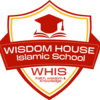Expanding Horizons: Grade Two at WISDOM HOUSE ISLAMIC SCHOOL
WISDOM HOUSE ISLAMIC SCHOOL welcomes budding scholars to Grade Two, an exciting year of deeper exploration, independence, and academic growth. Building upon the strong foundation laid in Grade One, our program continues to blend Western education principles with enriching Islamic values and Nigerian cultural awareness. Through engaging activities, collaborative learning, and a focus on individual strengths, Grade Two equips students with the necessary skills and confidence to embark on the next chapter of their academic journey.
Learning Objectives:
- Literacy & Language:
- Master fluent reading and comprehension of increasingly complex texts across genres.
- Develop critical thinking and analytical skills through writing persuasive essays, engaging in debates, and exploring different writing styles.
- Expand vocabulary and communication skills through collaborative projects, presentations, and participation in class discussions.
- Mathematics:
- Apply mathematical concepts confidently in solving multi-step problems involving fractions, decimals, and basic geometry.
- Enhance critical thinking and problem-solving skills through open-ended challenges, real-world applications, and collaborative projects.
- Strengthen foundational understanding of data analysis and probability, preparing for future math learning.
- Science & Social Studies:
- Cultivate a deeper understanding of scientific concepts through hands-on investigations, experiments, and exploration of diverse scientific phenomena.
- Gain a comprehensive understanding of social studies concepts like government, diverse cultures, and historical events through simulations, discussions, and community involvement.
- Foster environmental awareness and responsible citizenship through engaging projects, service learning opportunities, and critical thinking exercises.
- Islamic Values & Cultural Identity:
- Deepen understanding and application of Islamic values like integrity, responsibility, and service to others through storytelling, discussions, and community service projects.
- Explore and celebrate Nigerian cultural heritage through traditional stories, music, crafts, and guest speakers, fostering a strong sense of belonging and cultural awareness.
- Social & Emotional Development:
- Build strong social skills and emotional intelligence through collaborative learning, teamwork, leadership opportunities, and effective communication.
- Develop independence, responsibility, and self-confidence through differentiated tasks, peer review, and opportunities to manage learning.
- Foster empathy, kindness, and respect for others through Islamic values and positive classroom interactions.
Curriculum and Activities:
- Project-based learning: Engaging projects centered around historical figures, global issues, or scientific discoveries encourage deeper understanding, collaboration, and critical thinking.
- Differentiated instruction: Lessons and activities are tailored to individual learning styles and pace, ensuring every student is challenged and supported.
- Technology integration: Technology is used responsibly to enhance learning, research, and creativity, while promoting digital citizenship.
- Islamic integration: Daily routines, activities, and storytelling seamlessly integrate Islamic values and practices, fostering cultural identity and spiritual development in a meaningful manner.
- Cultural celebrations: Nigerian cultural events and traditions are celebrated throughout the year, fostering a sense of belonging, inclusivity, and cultural pride.
- Field trips and community service: Age-appropriate excursions and service learning opportunities provide practical application of learning, connect with the local community, and promote responsible citizenship.
Assessment and Evaluation:
Progress is tracked through a comprehensive approach that combines observations, teacher-student conferences, individual assessments, portfolios, and standardized tests (aligned with Nigerian standards when applicable). Regular communication with parents ensures collaboration and provides ongoing support for individual learning needs.
Conclusion:
WISDOM HOUSE ISLAMIC SCHOOL’s Grade Two program offers a stimulating and supportive environment where students become confident learners and responsible individuals. By integrating Western education principles with Islamic values and embracing the vibrant Nigerian context, it equips students with the necessary skills, knowledge, and confidence to succeed in their academic journey, while fostering a strong cultural identity and a global perspective.


